Colombia
Claudia López mum on whether she will run for president of Colombia
LGBTQ+ Victory Institute honored former Bogotá mayor in D.C.

Former Bogotá Mayor Claudia López did not specifically discuss the growing speculation over whether she will run for president of Colombia in 2026 when she spoke at Saturday’s LGBTQ+ Victory Institute’s Annual International LGBTQ Leaders Conference in D.C., or with the Washington Blade.
“In a week I am going to return to Colombia and I’m coming back with a very, very punctual task,” she said in a speech she gave after the Victory Institute inducted her into its LGBTQ+ Political Hall of Fame at the JW Marriott. “Democracy in the world in general needs emotional reconnection.”
López, 54, was a student protest movement leader, journalist, and political scientist before she entered politics.
She returned to Colombia in 2013 after she earned her Ph.D in political science at Columbia University.
In her speech, López said Juan Francisco “Kiko” Gomez, a former governor of La Guajíra Department in northern Colombia, threatened to assassinate her because she wrote about his ties to criminal gangs. A Bogotá judge in 2017 convicted Gómez of ordering members of a paramilitary group to kill former Barrancas Mayor Yandra Brito, her husband and bodyguard, sentencing him to 55 years in prison.
López in 2014 returned to Colombia and ran for the country’s Senate as a member of the center-left Green Alliance party after she recovered from breast cancer. López won after a 10-week campaign that cost $80,000.
“I was the only woman, the only LGBTQ member of my caucus,” she said in her speech. “Of course I had the honor, but also the responsibility to represent them particularly well, [and] of course all the citizens who trust me and all the citizens of Colombia.”
“Once you are elected, you are elected to represent equally and faithfully all of the people, not only your own people,” added López.
In 2018, López was her party’s candidate to succeed then-President Juan Manuel Santos when he left office. López in 2019 became the first woman and first lesbian elected mayor of Bogotá, the Colombian capital and the country’s largest city.
“This of course speaks incredibly well of my city,” she said in her speech.
López took office on Jan. 1, 2020, less than a month after she married her wife, Colombian Sen. Angélica Lozano. (López was not out when she was elected to the Senate.) Lozano was with López at the Victory Institute conference.
López’s term ended on Dec. 31, 2023. She will return to Colombia once her Advanced Leadership Fellowship at Harvard University ends this month.
“I ended my mayorship,” López told the Blade. “It has been, of course, the honor of my life to be the first female mayor of my city. It was an absolutely beautiful job, but very challenging.”
“I needed a year of rest, of relaxation, and I was fortunate to receive a Harvard scholarship this year,” she added.
López during the interview called for an end to polarization and reiterated her support for democracy.
“We need to listen to each other again, we need to have a coffee with each other again, we need to touch each other’s skin,” she said.
López said parties, candidates, and their political coalitions in Colombia and around the world need to “listen, reconnect, and organize with people” at the grassroots level. López also told the Blade there is a “global crisis of democracy.”
“Each country has its own contexts and challenges, but it seems to me that there is a common element there,” she said.
“So, I return to Colombia rested, grateful after a year of reflection, with proposals in mind, but determined to dedicate time to what I consider the most important work for democracy at this time, which is to reconnect from the grassroots,” added López.
‘I know what love and education can do for any person’
López took office less than three months before the COVID-19 pandemic began.
“We were full of hope, ready to go to offer a new social and environmental contract for Bogotá society for the 21st century,” she said. “But a couple of (months) after being sworn into office, the pandemic of COVID-19 came.”
Unemployment and poverty rates soared in Bogotá during the pandemic, and the city’s residents had less access to health care and other basic services.
López noted her administration in response to the pandemic offered scholarships to young people, supported businesses, and increased funding of the city’s social services. López also said her administration implemented Latin America’s first city-based care system for female care givers, and build three more LGBTQ+ community centers in poor and working-class neighborhoods.
“I know what love and education can do for any person,” she said.
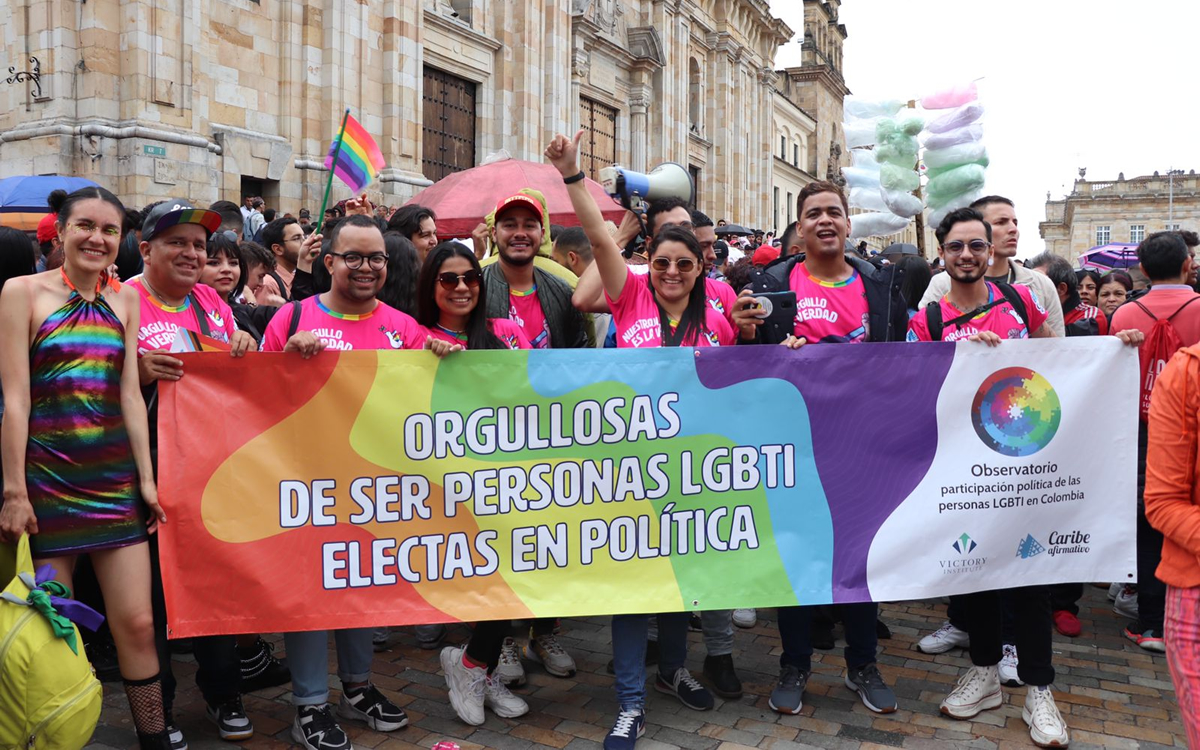
The U.N. Refugee Agency says upwards of three million Venezuelans are now in Colombia.
Then-Colombian President Iván Duque in February 2021 announced Venezuelan migrants who register with the country’s government will be legally recognized.
Former Bogotá Mayor Gustavo Petro, a former senator who was once a member of the M-19 guerrilla movement that disbanded in the 1990s, succeeded Duque as president on Aug. 7, 2022. Colombia and Venezuela restored diplomatic ties less than a month later.
Venezuela’s National Electoral Council on July 28 declared President Nicolás Maduro the winner of the country’s disputed presidential election. Tamara Adrián, the country’s first transgender congresswoman who ran in the presidential primary earlier this year, are among those who denounced voting irregularities.
WPLG, a South Florida television station on March 16, 2021, reported López sparked controversy after she told reporters there have been “some very violent acts from Venezuelans.”
“First they murder, and then they steal,” she said. “We need guarantees for Colombians.”
López made the comments after a Venezuelan migrant murdered a Colombian police officer in Bogotá.
“The problem is not migration from Venezuela,” López told the Blade in response to a question about Venezuela. “The problem is authoritarianism in Venezuela and you have to keep the focus on it.”
“The problem is what it is: It is not the migrants, it is in Maduro, it is in the dictatorship, it is in authoritarianism.”
More than 200,000 people died in the war between the Colombian government and the Revolutionary Armed Forces of Colombia that began in 1962.
Santos and the Revolutionary Armed Forces of Colombia Commander Rodrigo “Timochenko” Londoño on Sept 26, 2016, signed an LGBTQ-inclusive peace agreement. Colombian voters a few days later narrowly rejected it a referendum that took place against the backdrop of anti-LGBTQ+ rhetoric from religious and conservative groups.
Santos and Londoño less than two months later signed a second peace agreement, which also contains LGBTQ+-specific references.
López described herself as “a person totally committed to the peace process.” She added, however, she has “a bit of a bad taste in my mouth now that I look back.”
“The peace process with the FARC, which was to demobilize the FARC, period, certainly tried to have and had a gender focus, of course a diversity focus, a focus on human rights for all victims, and certainly (the) many LGBT victims who had been victims of FARC recruitment, abuse, stigmatization, etc.,” López told the Blade. “So, in some sense, or in many senses, having that gender and diversity perspective was a way of recognizing the victims of our community.”
She noted opponents lied about the LGBTQ+-specific provisions “to deceive and delegitimize the peace agreement.”
“It is not about making anything invisible, or even downplaying anything, but rather about being much more strategic in understanding that we do not want our flags and causes to be exposed in a way that ends up being a boomerang for our own community,” López added. “So, I say that is why it is a disappointment, because I think it is a lesson. At least for me, it made me think and it makes me think, and I have said it openly since then, that we have to be much more careful and much more, above all, strategic, in how we raise our flags so that they really do not only have symbolic, but real advances and so that in no case do they become a boomerang against ourselves.”
‘I know how you feel’
López during the interview praised the recent elections of Mexican President Claudia Sheinbaum, Uruguayan Vice President Beatriz Argimón, and other women in Latin America. She also expressed sympathy with LGBTQ+ Americans who are concerned about the incoming Trump-Vance administration.
“I know how you feel,” said López in her speech. “I’ve been there when we lost the peace referendum in 2016. I’ve been there when three candidates who represented independent, new alternatives in Colombia, and policies were killed by mafia groups in 1990. I’ve been there when a mafia cartel was able to fund and elect a president for all of us. I’ve been there when paramilitary groups were able to support and elect another president in Colombia.”
“I know how obscure and difficult and challenging and painful democratic times are, but we cannot (back) democracy only when we win,” she added. “It’s precisely when things are challenging, when we suffer defeats that are painful, that we need to attach to our democratic and humanistic values and principles.”

-

 Opinions4 days ago
Opinions4 days agoGay for pay: Andy Lee and the changing face of content creation
-
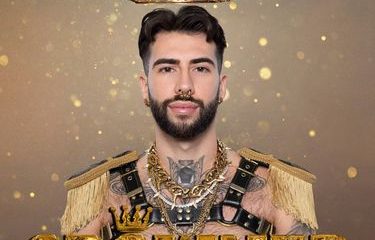
 a&e features3 days ago
a&e features3 days agoNo longer just a go-go dancer, Prince Joshua debuts ‘Crowned’ EP
-
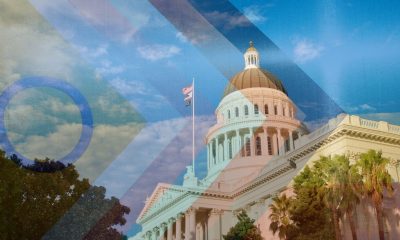
 opinions4 days ago
opinions4 days agoWhy is it important for cities to become LGBTQ sanctuary cities?
-
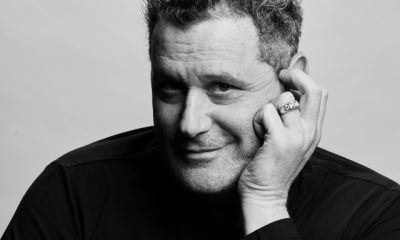
 a&e features4 days ago
a&e features4 days agoFashion icon Isaac Mizrahi brings performances to the West Coast
-

 Features2 days ago
Features2 days agoFinding love in queer Los Angeles with matchmaker Daniel Cooley
-
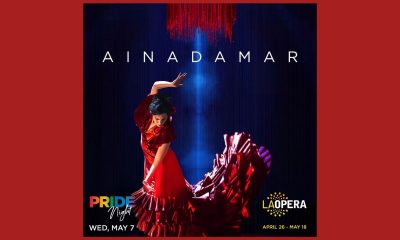
 Arts & Entertainment2 days ago
Arts & Entertainment2 days agoLA Opera brings back Pride Night for ‘Ainadamar’ production
-
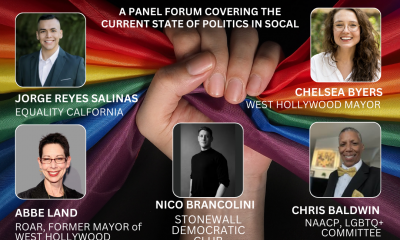
 Features1 day ago
Features1 day agoLos Angeles Blade kicks off Free Community Event Series with an informative political panel of government and advocacy group leaders
-

 Noticias en Español2 days ago
Noticias en Español2 days agoINDIGNACIÓN: ¡El transfeminicidio de Sara Millerey en Colombia nos cuestiona como sociedad!
-
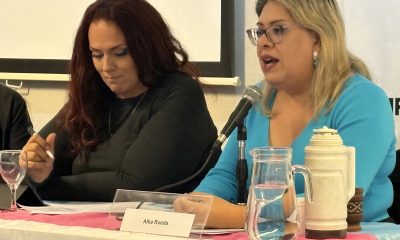
 Argentina2 days ago
Argentina2 days agoArgentina’s transgender community confronts ‘chaotic, desperate’ situation



